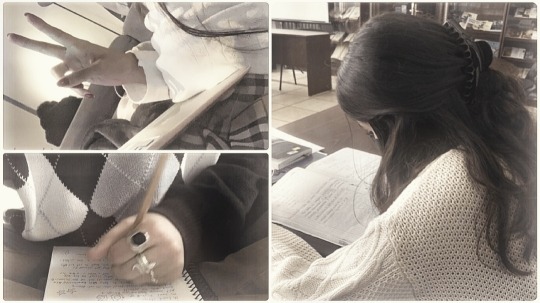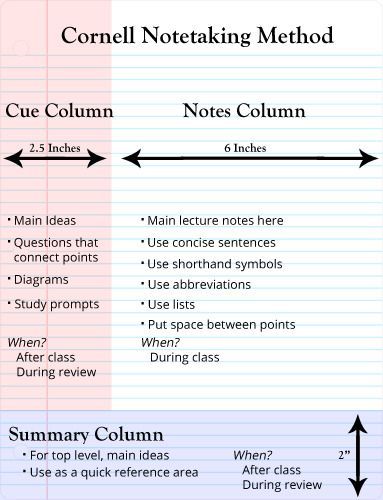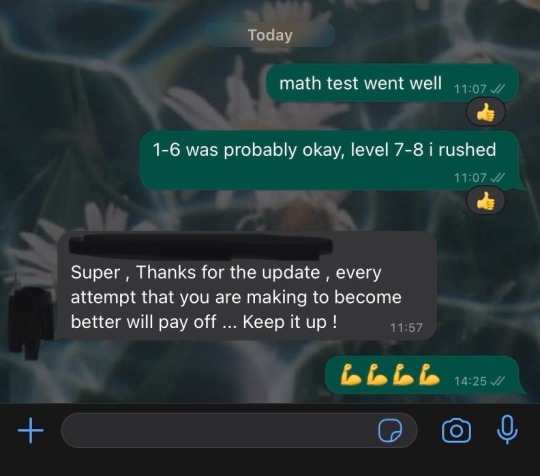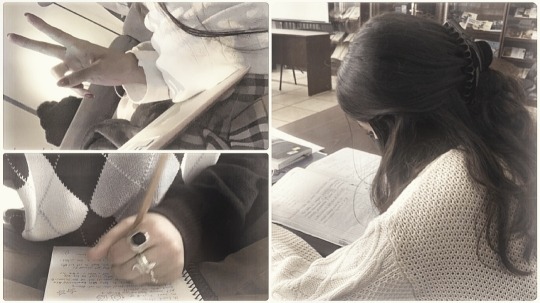#IB school
Explore tagged Tumblr posts
Text
how dare u articles not include the date it was last modified and the full authors names
do you not know.
the PAIN!
and TORMENT!!! youve caused readers of your stupdi article to feel????
do you REALIZE!
that 87% of your readers are students desperately searching for sources for a randomly specific topic for a project??????!!!!!!!!!!
do you not know how we have SOBBED and SUFFERED after finding that our perfect source couldnt have a perfect citation??????
DO YOU KNOW HOW WE KNOW WE NEED TO BRUSH OUR TEETH TWICE A DAY BUT WE ONLY NEED THAT BECAUSE WE NEED PROOF TO JUSTIFY OUR STATEMENTS????
*sobs in ib student*
#ib#ib school#ib curriculum#student#school#high school#middle school#college#task#assignmeny#university#students#teacher
158 notes
·
View notes
Text

⋆ ˚。⋆୨୧˚ 15 tips through 15 days— follow me for more study tips and aesthetic content.
tip number five: practise effective note-taking techniques.
Note-taking is the fundamentals of your higher education, and can only come by practising. Simply jotting down what you see from a slideshow is not the most effective way to understand and retain the information. Active note-taking techniques, like the Cornell method and mind mapping, can change the way you retain and process information.
The Cornell note-taking method is a structured approach that emphasises organisation and involvement. Divide your note-taking paper into three sections: one on the left, one on the right, and one at the bottom. Take notes in the right-hand column during the lecture or reading, focusing on major concepts, key points, and supporting info. After the lecture, go back your notes and jot down prompts or keywords that summarise the information in the right column in the left column. Write a brief summary of the entire page of notes in the final section. This summary serves as a quick reference for future reference.

Mind mapping is a visual note-taking approach that utilises diagrams to communicate conceptual links. Begin at the centre of your page with a key point, central idea or topic. Extend the basic theme with subtopics or main points. Connect them using lines. Expand on each subtopic with relevant details, examples, and supporting information. Make your mind map more aesthetically appealing and remembered by using colours, symbols, and images.

The connecting element among all strategies is active participation. Actively digesting material while taking notes, rather than simply writing words, it increases cognitive involvement. As a result, comprehension, memory retention, and recall improve during tests or assignments.
Active participation also fosters critical thinking. You're essentially analysing the material as you go while you're organising thoughts, summarising stuff, and visually showing linkages. This practice increases higher-order thinking skills, making it simpler to comprehend complex issues and efficiently apply your knowledge.
Follow me on TikTok for the same content at @nupurisadreamer.
NEXT: day six of 15 tips through 15 days (series)
#15 tips through 15 days#ib studyblr#ib student#studyspo#studying#dark academia#academic validation#academicwriting#study tips#school advice#ib school#note taking#cornell notes#mindmap#school notes#old posts
46 notes
·
View notes
Text
Sometimes I wonder why I even bother doing the IB program, especially here in Spain, where basically I am probably going to end up just being accepted in college due to the national exams.
I feel like I am always doing more work than other people. So, I have a doubt:
Do most schools focus only on the IB programme itself (only focusing on IB content) or is it common for schools to mix it up with their national school system??
(My school gives lessons separating them in an IB section and the “traditional” one, with the regular exam system, and grades)
I don’t even know if I am expressing myself correctly here haha🥲. But I am genuinely curious about how it works in other places.
#ib school#ib diploma#student#student life#ib student#school#international baccalaureate#ib program#grades#ibdp#ibdp student
2 notes
·
View notes
Text
hey guys.. i know i haven't post in like.. a week? maybe more? and tbh i have no other excuse than that i've been tired. even though i had like only 1 thing for last week i felt like it was really really tiring, and i don't rlly know why. anyway this is what my week looks like, so i'll try and update every day (if i can't then alteast like in the middle and end of the week)

i've been searching abt universities in the UK and Canada that are,, amicable for international students (+ what advantages i get if i do the 2nd year of IB) and so far i've found one in UK that really interests me (oh & i'm thinking of studying something along the lines of politics, International Realtions, law, that stuff), so if anyone has any suggestions of universities or were to look please lmk!!!
#call me moon#moon talks#studyblr#school#studyspo#student#studying#styleblogger#study motivation#student life#high school#university#uni student#uk#uk politics#politics#political#diplomacy#career#opportunity#canada#international baccalaureate#ib student#ib school
5 notes
·
View notes
Text
youre scared of meeting my dad?
my dad:

#blogging#city life#daily life#city#documenting life#lifestyle#netherlands#teenager#aesthetic#math test#math homework#test results#dad#father#parenting#daughter parent relationship#math work#ib school
4 notes
·
View notes
Link
For IB students, the IB boarding school provides the ideal setting. Enrolling kids in the IB Diploma Program at the best IB schools in Gurgaon is the smartest decision any parent could make for their kids. It is a rigorous academic program that gets students, who are typically between the ages of 16 and 19, ready for success in college and beyond.
2 notes
·
View notes
Text
0 notes
Text
IB schools in Gurgaon
IB schools in Gurgaon offer a world-class education with a globally recognized International Baccalaureate curriculum designed to develop inquisitive, knowledgeable, and compassionate learners. These schools focus on fostering critical thinking, creativity, and a global perspective, ensuring students are well-prepared for challenges in an interconnected world.
Contact here - https://excelsioramericanschooladmissions.com/blogs/tag/list-of-ib-school-in-gurgaon/
0 notes
Text
hello!! i'm doing a research project on emotional abuse, and would greatly appreciate your answers, experiences, and time!! this is for the IB (international baccalaureate) diploma programme's social and cultural anthropology class, and i have wanted to explore this topic for a very long time. please consider taking this survey!! thank you so much!!
#child abuse#childhood trauma#emotional abuse#trauma#tw trauma#actually mentally ill#grooming#tw grooming#tw abuse#abuse survivor#parental abuse#narcissistic abuse#psychology#anthropology#ib diploma#ib school#international baccalaureate#research#trauma recovery#mental illness
0 notes
Text
Understanding the IBDP Admissions Process: A Step-by-Step Guide
The IBDP process of admission and other related processes may prove to be a budding mountain for both students and parents and in fact an actual Baccalaureate experience where it is being taught in many more schools in Mumbai.
But, knowing the IBDP admission process can help eliminate some of these hurdles and make the whole process more orderly.
Here is the ultimate IBDP admission process for every interested applicant out there.
Step 1: Research and Choose the Right School
Prior to applying for the IBDP admissions in Mumbai, looking for schools providing IBDP is necessary. The most desired IBDP schools in Mumbai, which are fond of your ideals and educational ethos, should be sought.
Different schools will have different advantages and different divisions of other activities and support, so not hurrying in the search is helpful.
Think of going to schools in person or participating in open house tours to understand their environment and culture.
Step 2: Check Eligibility Criteria
Most schools require students to have completed their Class X education from a recognized board. Familiarize yourself with the specific eligibility criteria set by your chosen school. This information is typically available on the school’s website or through their admissions office. Some schools might also require a minimum grade point average (GPA) or specific subject prerequisites.
Step 3: Submission of Application
After choosing a school, a candidate can now begin the application process. Complete the application form as required and send it together with the other documents as stated. Documents that are often requested include:
- A copy of the student’s birth certificate as issued
- Academic transcripts from the previous classes
- Recommendations from teachers (if any)
Step 4: Admission Tests
As part of the IBDP admissions process, most schools have entrance tests for candidates. These tests typically include tests for the subjects of English, Mathematics, and Science.
Make sure you practice enough for these evaluations as they are very important factors in the admission process. Some institutions may also give sample papers or offer other resources to students to enable them to prepare well.
Step 5: Personal Interaction
Following the successful completion of entrance examinations, an interview with the shortlisted candidates is commonly done. This step assists the institution to gauge the motivation, interests, and general suitability of the student to the IBDP.
Make sure to be ready to share your interest in studies as well as your desired achievements after studies during this meeting. It is also aimed at the students to ask questions regarding the program and show their eagerness.
Step 6: Admission Fee for IB Diploma
If and when a candidate accepts an offer for admission, the next step would be to pay the admission fee for IB Diploma active English. This amount differs from one institution to another and is inclusive of the registration fee, study materials, and other logistical matters.
Before you accept, be sure you are fully aware of all the costs.
In addition, ask if there are any additional payments for extra activities or special programs that are currently taking place.
Step 7: Concluding the Enrolment Process
Upon remitting the admission fee, ensure that you meet the other bureaucratic hurdles which the institution may require from you. This can be health clearance forms, waivers for sporting and non-sporting activities and any other required materials.
Keep in mind to make sure that you are maintaining the records of all the hard copies of the documents that have been sent.
Wrapping Up
There is no doubt that the IBDP admission process is not easy, however with some measures in place, it becomes enjoyable. The IBDP not only enables one to pursue education beyond teaching but to also adopt the skills and ways of thinking which are very important in the world today.
This step-by-step guide will assist the students in a very good way as they embark on their IBDP admissions journey. As you commence this wonderful educational journey at one of the starring IB schools in Mumbai, keep in mind it is only the first step towards a life-changing expedition which will determine the kinds of opportunities you will or won’t have in future.
The things that one will learn during the IBDP program can trickle down to provision of success at tertiary education and even after. Take advantage of this to better yourself in school and even your personal life as you prepare for the promising future that lies ahead!
When taking on this task, be sure to keep records in an orderly manner, be clear and cordial with the other schools’ personnel, and be active in asking for help when necessary—these will contribute towards a successful entry process into one of the most prestigious educational programs there is today; Chatrabhuj Narsee School Mumbai.
0 notes
Text

⋆ ˚。⋆୨୧˚ 15 tips through 15 days— follow me for more study tips and aesthetic content.
tip number four: put yourself out there by clubs and extracurricular activities (sorry for the late post)
whether it be in the form of clubs or different extracurricular activities, you need to put yourself out there and give yourself a bit of experience. This will make you stand out among the others in your group
but before actually joining a club or an extracurricular activity, you need to find out what you're interested in. You can start by making a mind map of sorts to find your interests. Start with a central idea, it could be “hobbies,” “interests,” or anything else you would like. Then you can branch out to different areas of potential, like "art," "sports," "technology," "music," “leadership,". And then you can explore the sub branches. For example, for art it could be “painting,” “graphic design” and ect.

take a moment to reflect on what interests you the most. If you want to pick up something new, try to research what it involves. Like maybe you want to try crochet, then you need to find out where to get patterns, yarn, hooks…
this should be your basic thought process, but is not necessary.
seek the clubs that align with your interests. If you are interested in a certain thing which doesn't have a club, you can initiate a club instead. This will teach you how to manage in a position of leadership.
keep track of your achievements and experiences, This record can be valuable for future applications and self-assessment. Joining clubs also helps you meet people you wouldn't have and help you network.

make sure to manage your time properly and remember that growth happens outside of your comfort zone.
Follow me on TikTok for the same content at @nupurisadreamer.
NEXT: day five of 15 tips through 15 days (series)
#15 tips through 15 days#study goals#ib studyblr#ib student#studyspo#studying#dark academia#academic validation#academicwriting#study tips#school advice#ib school#extracurricularactivities#old posts
8 notes
·
View notes
Text
Top-Rated CBSE Schools, IB Schools, and Schools in JP Nagar: A Parent’s Guide
Bangalore’s educational landscape offers a variety of schools that cater to different academic and personal growth needs. From top-rated CBSE schools to globally recognized IB schools, and prestigious schools in JP Nagar, parents are spoiled for choice when it comes to finding the right educational environment for their children. This guide will provide tips to help parents navigate these options.
1. The Academic Rigor of Top-Rated CBSE Schools
Tip 1: Look for Schools That Focus on Academic Discipline Top-rated CBSE schools in Bangalore offer a curriculum that emphasizes structured learning and academic excellence. These schools prepare students for competitive exams and focus heavily on subjects like science, mathematics, and languages. Parents seeking a disciplined academic environment should consider CBSE schools as a top option.
Tip 2: Consider Extracurricular Opportunities While academics are the primary focus, CBSE schools also provide students with opportunities to explore extracurricular activities. This helps in developing leadership, teamwork, and problem-solving skills. Visit top-rated CBSE schools in Bangalore to find institutions that offer a comprehensive educational experience.
2. IB Schools in Bangalore: Fostering Global Citizens
Tip 3: Encourage a Global Outlook IB schools in Bangalore offer a holistic and inquiry-based curriculum that focuses on creativity, critical thinking, and global awareness. Parents who value interdisciplinary learning and want their children to develop problem-solving skills should consider IB schools. The International Baccalaureate (IB) program encourages students to take initiative and explore subjects in-depth.
Tip 4: Global Opportunities and Higher Education IB schools often collaborate with international institutions and offer exchange programs that provide global exposure. Parents who plan for their children to pursue higher education abroad should explore IB schools for their international approach to learning. Learn more at IB schools in Bangalore.
3. Schools in JP Nagar: Convenience and Quality Education
Tip 5: Consider Schools Close to Home JP Nagar is a prominent residential area in Bangalore that houses some of the city’s top schools. Schools in JP Nagar offer a balance between academic rigor and extracurricular activities, with the added advantage of being located close to home. This reduces travel time and stress, making it easier for students to focus on their studies and extracurricular activities.
Tip 6: Evaluate School Infrastructure and Facilities Many schools in JP Nagar boast state-of-the-art facilities, including modern classrooms, labs, sports grounds, and libraries. Parents should choose schools that offer a conducive learning environment with the necessary resources to support their child’s academic and personal growth. Explore schools in JP Nagar for top-quality education close to home.
Conclusion
Choosing the right school for your child in Bangalore requires careful consideration of their academic needs, personal growth opportunities, and the overall school environment. Whether you opt for a CBSE school, an IB school, or a school in JP Nagar, the key is to find a school that aligns with your child’s strengths and aspirations. By providing them with a nurturing educational environment, you set them on the path to lifelong success.
0 notes
Text
Best IB Schools in Mumbai for Holistic Education: Chatrabhuj Narsee School Mumbai
Learn about IB schools in Mumbai that focus on holistic education, providing diverse extracurricular activities and personal development programs.
0 notes
Text
youtube
''We do fun learning'', says MLSI Learner who wants to become a scientist when he grows up.
#ibschoolsextracurriculam#ibprogramme#internationalschool#ib programme#ibschoolsmumbai#ibschool#ib school#international school#Youtube
0 notes
Text
How Students Can Ace A-Level Exams in IB Schools: Effective Strategies for Studying

Preparing for A-level exams in an IB school can be a daunting task, but with the right strategies, students can excel and achieve outstanding results. This article provides a comprehensive guide to help students navigate their A-Level journey and offers effective study techniques to ensure success.
Understanding the A-Level Curriculum
The A-level curriculum is rigorous and requires a deep understanding of each subject. Students in IB schools often have the added challenge of balancing the demands of the International Baccalaureate (IB) programme with their A-level studies. To manage this effectively, it's crucial to understand the structure and requirements of the A-Level exams.
A-levels typically involve two years of study, with exams at the end of each year. These exams test a student's knowledge and understanding of the subject, as well as their ability to apply this knowledge in different contexts. In an IB school, students might also be completing coursework or internal assessments, so time management and organisation are key.
Effective Time Management
Time management is critical when preparing for A-level exams in an IB school. Students should create a study timetable that allocates sufficient time for each subject, taking into account their strengths and weaknesses. Prioritising subjects that require more attention can help ensure a balanced approach to studying.
It's also important to incorporate regular breaks and leisure activities into the timetable. Overworking can lead to burnout, which can negatively impact performance. By balancing study time with relaxation, students can maintain their motivation and focus throughout their A-Level preparation.
Active Learning Techniques
Active learning techniques can significantly enhance a student's understanding and retention of information. Instead of passively reading textbooks, students should engage with the material through various methods. For example, summarising key points in their own words can help reinforce understanding.
Another effective technique is to use flashcards for quick revision of important concepts. Flashcards can be particularly useful for subjects that require memorisation, such as biology or history. Additionally, practising past exam papers under timed conditions can help students become familiar with the exam format and improve their time management skills.
Collaborative Study
Studying in groups can be beneficial for A-level students in IB schools. Collaborative study allows students to share knowledge, clarify doubts, and gain different perspectives on difficult topics. Group discussions can also enhance critical thinking and problem-solving skills.
However, it's important to ensure that study groups remain focused and productive. Setting clear goals and sticking to a structured agenda can help prevent distractions and ensure that study sessions are effective. Students should also take turns teaching each other, as this can reinforce their understanding of the material.
Utilising School Resources
IB schools often provide a wealth of resources to support A-Level students. These can include access to libraries, online databases, and study materials. Taking advantage of these resources can provide students with additional information and insights that can aid their understanding of the subject.
Teachers and academic advisors are also valuable resources. They can provide guidance on difficult topics, offer feedback on assignments, and help students develop effective study strategies. Building a good rapport with teachers can create a supportive learning environment, which can be beneficial during the A-Level preparation period.
Maintaining Well-Being
While academic success is important, maintaining well-being is equally crucial. A healthy mind and body can improve concentration, memory, and overall performance. Students should ensure they get enough sleep, eat a balanced diet, and engage in regular physical activity.
Mindfulness and relaxation techniques, such as meditation or deep breathing exercises, can help reduce stress and anxiety. Maintaining a positive mindset and staying motivated are key to overcoming the challenges of A-Level exams in an IB school.
Setting Realistic Goals
Setting realistic and achievable goals is essential for maintaining motivation and tracking progress. Students should set both short-term and long-term goals for their A-Level studies. Short-term goals can include completing a specific number of revision topics each week, while long-term goals might involve achieving a certain grade in the exams.
Tracking progress towards these goals can provide a sense of accomplishment and help students stay on track. If necessary, students should adjust their goals to reflect their progress and any changes in their study schedule.
Seeking Help When Needed
It's important for students to recognise when they need help and to seek it promptly. Whether it's from teachers, tutors, or classmates, getting assistance can prevent small problems from becoming major obstacles. Many IB schools offer additional support services, such as tutoring or counselling, which can be invaluable during the A-Level preparation period.
By following these strategies, students can effectively prepare for their A-Level exams in an IB school and achieve their academic goals.
Visit EtonHouse today to discover more about how our IB school can help you excel in your A-Level exams.
1 note
·
View note
